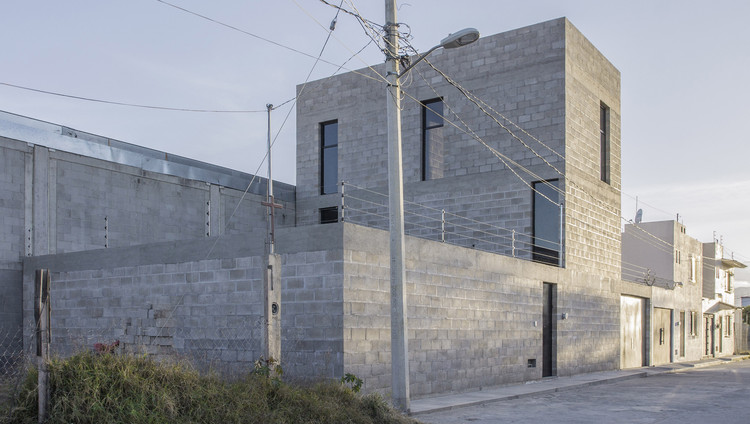
-
Architects: ET.co
- Area: 161 m²
- Year: 2018
-
Photographs:Emanuel Torres, Omar López Bautista
-
Manufacturers: Masisa, Cemex, Escenium HAUS, Tecnolite, Teka, Ternium Hylsa, VALVO

Text description provided by the architects. The house is located in the outskirts of the city of Oaxaca, a developing context, in the middle of changes in land use, where barely more than half are buildings; a combination between houses and large storage units.





























